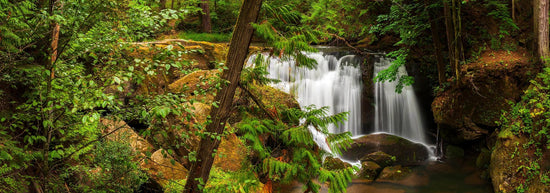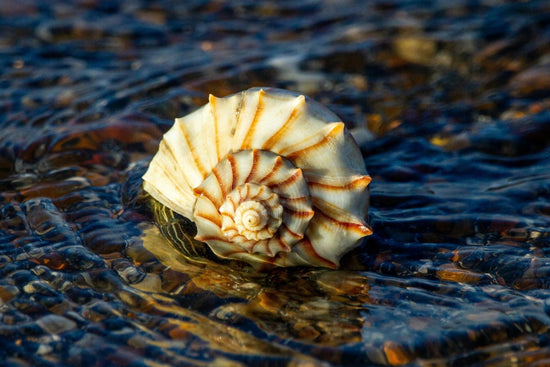June 8th is designated as World Oceans Day by the United Nations in order to foster public interest in the protection and responsible management of ocean resources. Our oceans are not just collections of resources, though. They are vibrant and alive and absolutely essential to all of our ways of life every day.
Vital to Life
We think a lot about conservation of land-based ecosystems, and that makes a lot of sense. These are the ecosystems that we interact with directly on a daily basis. But the oceans impact us, no matter where we live. They are vital to every other ecosystem on earth.
Our oceans represent a massive storehouse of water that fuels the hydrological cycle all over the planet. Without it, there would be no swamps, bogs, rainforests, snow-capped mountains, or grasslands.
Coastal ecosystems, like salt marshes, sequester excess carbon in the atmosphere, and do it more efficiently than forests. Our oceans also absorb extra heat from the atmosphere, providing a layer of climate change resilience. Oceans perform a vital role in regulating the climate of our planet.
Our oceans produce between 50% and 80% of the oxygen in our atmosphere, through photosynthesizing planktons, algae, and bacteria.
The ocean is home to species that are sources of food for us, and that feed terrestrial ecosystems.
The separation that we see between marine and terrestrial ecosystems is illusory. What happens on the land impacts our oceans, and what happens in the oceans impacts terrestrial ecosystems. There isn’t an environmental system or service on earth that isn’t driven, regulated, or impacted by the oceans.
Vital to Livelihoods
We often perceive a conflict between our economic well-being and conservation efforts, but this isn’t the case, especially with the oceans. More than three billion people on earth rely on the ocean for their livelihoods, many of them in developing nations. This includes subsistence fishing, which is vital for many coastal communities.
Fisheries and tourism are some of the most common jobs associated with the oceans, but these industries are inextricably linked to other economies both in maritime communities and those further inland. The oceans are vital to both local and global economies.
Fishing, whaling, and other practices are also an important part of the culture of people who live in coastal areas, and when these practices are threatened by poor water quality and overfishing, we start to lose these cultures.
The Threats to Ocean Ecosystems
Our oceans are in danger. While they provide a natural buffer against global climate change by absorbing carbon, releasing oxygen, and storing atmospheric heat, we are quickly outstripping the oceans’ ability to mitigate the damage we’re doing. Increasing acidification from dissolved carbon is damaging oceanic ecosystems. Decreasing salinity of surface waters is causing oceanic currents to slow, which has dramatic effects on weather patterns. This can produce stronger hurricanes, increased rainfall in some areas, and both increased and decreased mean temperatures in different parts of the world. Climate change is reducing the mixing between layers of ocean water, which not only impacts oceanic currents, but also prevents heat, oxygen, and carbon dioxide from reaching deeper waters of the ocean. This reduces the ocean’s ability to mitigate the effects of climate change, and also impacts the oceanic food chain.
Chemical, nutrient, and pharmaceutical pollution is also being released into oceans, through runoff from farm fields and city streets, and through wastewater. This pollution harms wildlife at all levels of the food chain, and damages marine-based economies that people rely on.
Plastic in the ocean is another form of pollution. This plastic waste appears as rafts on the surface, which are perhaps the most dramatic example of this pollution, but microplastics infiltrate deeper waters as well.
Why We Do What We Do
The well-being of our oceans is at the heart of everything we do here at Sea Witch Botanicals. Phthalates and Parabens, chemicals found in skin and hair products, make their way to the ocean waters and harm marine life. Phthalates and their metabolites have been found to be harmful to ocean life from plankton and corals all the way up to large marine mammals. This is why we focus on using natural ingredients that won’t cause this kind of pollution.
We focus on reducing plastic use by offering products in metal tins and glass bottles, to prevent more plastics from ending up in our oceans.
We reduce the impact of shipping our products by offering them in solid form (such as our shampoo bars and solid perfumes), which offer more product in a smaller package, reducing overall shipping.
We are a certified B-Corp, which means that we meet high standards of social and environmental performance, allowing us to balance profit and purpose. We are a 1% For The Planet member, which means that we make certified contributions to environmental non-profits as a part of doing business. Our production facility is Toward Zero Waste.
In short, our business is designed from the heart out with the health of our oceans in mind. And we’re so happy to have you with us on this journey to promote more sustainable business practices and support environmental non-profit organizations.
Written By: Allie Drennan
Photos By: Hannah Gabrielson






